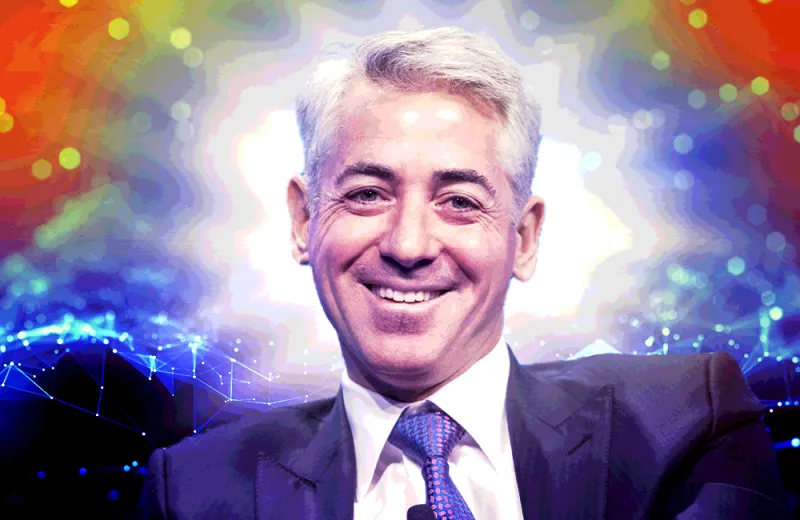Bill Ackman’s Pershing Square Holdings jumped 7.3 percent in June, giving the publicly traded hedge fund a 10 percent return for the year and a 6.1 percent gain for the quarter, according to a notice to investors.
But while Ackman is coming back sharply after last year’s 8.8 percent loss, his company’s discount to its net-asset value — a perennial problem — has only gotten wider. At the end of June, it traded at a 36 percent discount to NAV on the London Stock Exchange, compared with about 32 percent at year end. At the end of 2021 Pershing Square traded at a 28 percent discount to NAV.
The discount is so vexing that it has become a discussion point on Twitter, where Ackman is a regular poster. “Great story, Bill. How about the massive discount on PSH? Seriously frustrating,” shareholder Luke Zerdes tweeted to Ackman, replying to the hedge fund manager’s recent post about winning a tennis match. Zerdes, from Bryn Mawr, Pennsylvania, said he bought the stock through Charles Schwab and TD Bank, which won’t allow him to buy more.
Most Americans only buy shares over the counter in the U.S., which means most of the Pershing Square Holdings stock that is not owned by Pershing Square management is held by global banks and European firms, as it trades on both the London Stock Exchange and Amsterdam’s Euronext.
Recently several big banks have been shedding shares, topped by UBS, which sold owned 147,012 shares after selling 577,017 shares, according to Bloomberg data as of June 29. Other big sellers at that time were Societe Generale, Morgan Stanley, and JPMorgan Chase.
The banks may hold shares in their asset management units but are also likely the counterparties for U.S. hedge funds — the beneficial owners — who are using the swaps market to avoid incurring U.S. taxes from trading the European-based hedge fund, says one person familiar with the strategy. (The practice became well known after the implosion of Bill Hwang’s Archegos Capital, which was placing its bets via total return swaps made with Wall Street banks.)
Other Pershing Square top investors are British wealth management firms, like Quilter PLC, which was formerly known as Old Mutual Wealth Management, Hargreaves Lansdown, and Legal and General Group. Quilter recently sold shares, while Legal and General Hargreaves have been buyers.
Even as the discount has continued, Ackman has cemented his control of the firm’s future with a controlling stake of 21.90 percent of the outstanding shares, or 41.4 million shares, according to Bloomberg data as of July 4. Nick Botta, Pershing Square’s president, owns another 1.09 percent, making him the fifth-biggest shareholder with 2.07 million.
BlackRock was the second-largest shareholder, with a 1.70 percent stake of 3.22 million shares. Legal & General was third, with a 1.2 percent stake and 2.28 million shares. Coming in fourth was Asset Value Investors, Ltd., with a 1.13 percent stake and 2.14 million shares.
Ackman has tried various methods to narrow the discount, including buying back shares and listing on multiple exchanges. Pershing Square is not allowed to market itself in the U.S., which limits the pool of potential buyers — and makes Ackman’s Twitter feed a way for him to reach people who may never have heard of Pershing Square.
An Austin, Texas-based investor who has tweeted about the discount under the pseudonymous handle of @Biohazard3737 told Institutional Investor that even though the discount is excessive, “I’m not bothered by it in the short term.” However, he believes Ackman’s sometimes controversial tweets, which II has previously written about, are a problem. “I do think that controversial political takes are hurting the reputation of PSH,” he said.
The investor, who runs a small healthcare hedge fund, confirmed that he — but not his fund — is shareholder of Pershing Square Holdings. He believes the discount may close if there is a larger strategic transaction, as Ackman has talked about in recent months as a way to circumvent regulations that prohibit a hedge fund listing in the U.S.
Ackman declined to comment.







